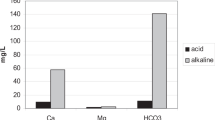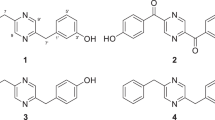Abstract
WE have reported that we were unable to obtain any evidence of ” strogenic activity in rats with benzylidenepyruvic acid and furylidenepyruvic acid or their sodium salts1. These negative results were attributed by Friedmann2 to the use of insufficient doses (100 mgm. per rat), and to an unsuitable spacing of the doses. Friedmann predicted that 240 mgm. of dry sodium salts would be sufficient to produce ” strus in rats, and claimed to have obtained ” strus in mice with 24 mgm., injected in three doses at intervals of 24 hours.
This is a preview of subscription content, access via your institution
Access options
Subscribe to this journal
Receive 51 print issues and online access
$199.00 per year
only $3.90 per issue
Buy this article
- Purchase on Springer Link
- Instant access to full article PDF
Prices may be subject to local taxes which are calculated during checkout
Similar content being viewed by others
References
J. W. Cook and E. C. Dodds, NATURE, 135, 959; 1935.
E. Friedmann, NATURE, 136, 108; 1935.
Author information
Authors and Affiliations
Rights and permissions
About this article
Cite this article
COOK, J., DODDS, E. & WARREN, F. Chemistry of strogenic Substances. Nature 136, 912–913 (1935). https://doi.org/10.1038/136912b0
Issue Date:
DOI: https://doi.org/10.1038/136912b0
Comments
By submitting a comment you agree to abide by our Terms and Community Guidelines. If you find something abusive or that does not comply with our terms or guidelines please flag it as inappropriate.



